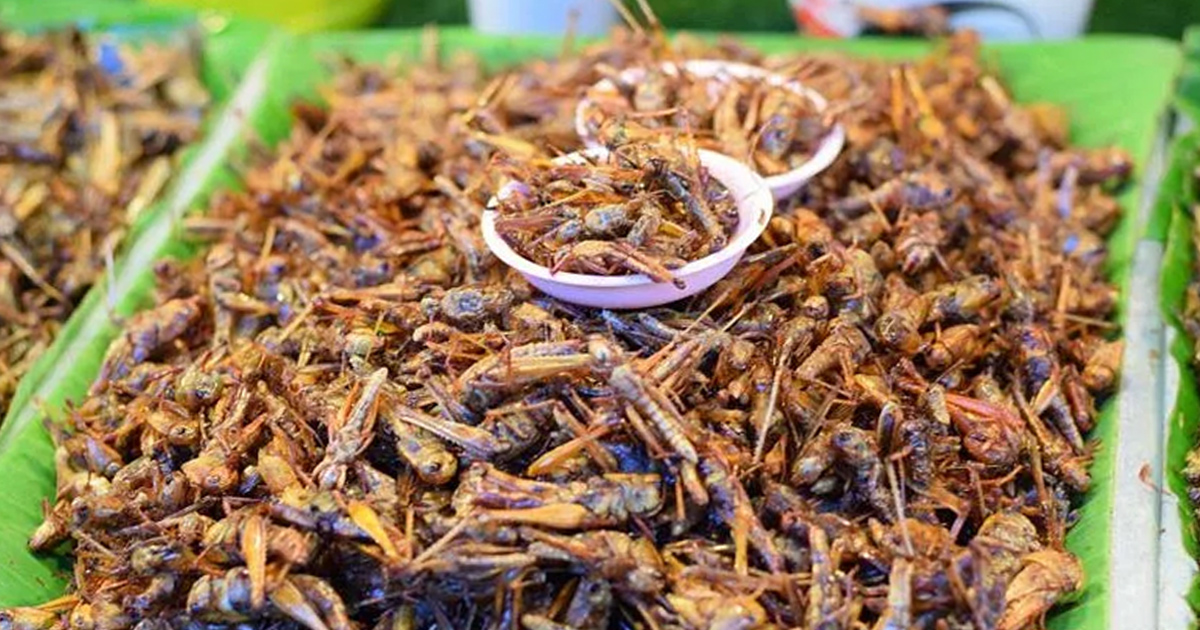
Fancy a snack of crispy grasshoppers in salted egg yolk crumbs or a breakfast of bread laced with cricket meal?
Once the domain of science- fiction movies, the idea that the global food shortage becomes so dire that humans farm insects for food is becoming reality.
The Straits Times reported in October that the Singapore Food Agency (SFA) was seeking feedback from the food and animal feed industry to allow insects for human consumption and as livestock feed.
If the answer is favourable, it could mean that restaurants here could be serving six-legged critters as early as 2023.
SFA has already conducted a thorough scientific review and concluded that some species of insects with a history of human consumption can be served as food, said its spokesman. These include silkworm pupae that are eaten in South Korea and crickets, a popular snack in Thailand.
SFA is also reviewing 16 insect species, including grasshoppers, beetles, mealworms, moths, silkworms and honey bees.
The approved insects, whether imported or locally farmed, and insect products would be subject to food safety requirements, the agency stresses.
Companies will have to prove that the insects are farmed in regulated establishments and not contaminated with pathogens or harmful contaminants.
Singapore companies are ready to load supermarket shelves with insect food products.
Among these are Altimate Nutrition, a spin-off from Republic Polytechnic, which produces flavoured cricket protein bars; and Asia Insect Farm Solutions, which produces cricket powder for use in flour or cookies. They currently get their insects from farms in Thailand and sell their products overseas.
If eating bugs gives you the creeps, look out for other alternative proteins with "cleaner labels" that go beyond the common issues of being highly processed and high in sodium and additives.
Agri-food companies are developing products that have fewer ingredients or incorporate more natural ingredients for health- conscious consumers, says Mr Eugene Toh, Enterprise Singapore's director of food manufacturing.
Local plant-based chicken Tindle, for example, is made with just nine ingredients, including soya protein, coconut oil and oat fibre.
Another trend to watch is the emergence of hybrid products -- a combination of plant-based proteins with cell-cultured fat.
Mr Toh says such products are likely to taste more like real meat, but manufactured at lower cost as compared with cell-cultured meat.
Food tech company ImpacFat unveiled its cultivated fish fat at the recent Big Idea Ventures Demo Day, where selected participants got to try the product, with SFA's approval.
Made with fish stem cells, the addition of this fat is meant to enhance the mouthfeel of alternative meat products, which tend to lack the texture and flavour that fat provides.
Organised by venture capital firm Big Idea Ventures, the event also showcased various companies in the alternative protein space under its accelerator programme, giving participants and investors alike a glimpse at the future of food.
A hybrid meat innovation centre -- said to be a world first -- is slated to launch here in 2023.
It is a tie-up between Dutch cultivated pork company Meatable and local plant-based butcher Love Handle. Its aim is to have hybrid meat items such as dumplings, pulled pork, pork belly and cold cuts available in restaurants by 2024, and on supermarket shelves by 2025.
Get ready to chomp on bugs and other alternative proteins.
Source: The Straits Times © Singapore Press Holdings Limited. Reproduced with permission.

